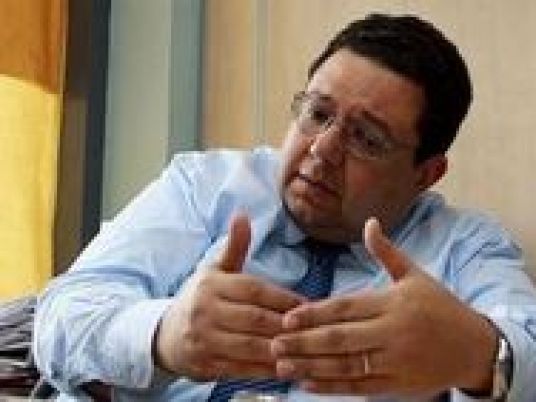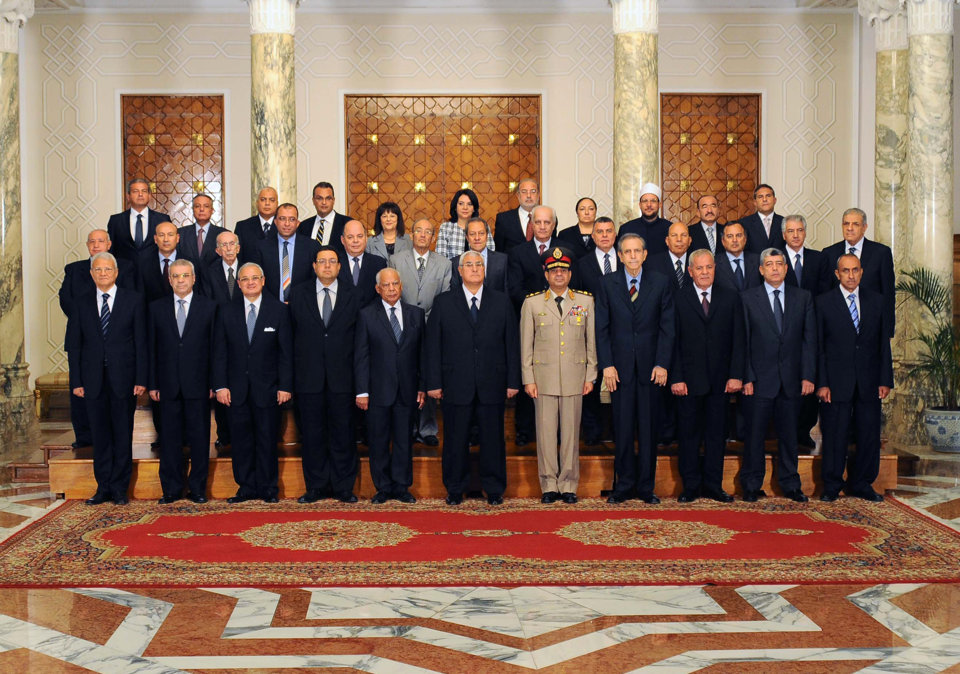
Former Deputy Prime Minister Ziad Bahaa Eddin, who is also the vice president of the Egyptian Democratic Party, said in an interview with Al-Masry Al-Youm that many laws issued by presidential decree should be revised, adding that there is a clear tendency to push everyone away from politics.
He also said that citizens are reluctant to participate in the elections because they feel their votes will make no difference.
Eddin added that there is no control over what he called “political money” that is used to buy votes in the elections, saying that there is no law preventing the appointment of a parliamentary speaker, but it would be better if he is elected.
Q: What is the party working on after the end of the parliamentary elections?
A: We are examining the laws that were issued by presidential decree. There are 350 out of 400 laws that the Parliament should review in accordance with the Constitution before it passes them.
Q: What about the Civil Service Law?
A: Although it aims to improve the administrative system and achieve transparency in appointment and promotion, there are three problems with it:
The first is that it is not clear which government bodies the law applies to.
The second is that amending this law is in the hands of the executive branch and not Parliament.
And the third is that it forms committees to develop human resources in just one year, whereas this task needs at least three years.
Q: Article 15 of the state budget law converts the variable part of the total salary into a fixed figure, rather than a percentage, in order to bridge differences between wages and achieve equality. Is this enough?
A: We should determine a minimum and a maximum wage and apply them firmly yet with a certain degree of flexibility for the private sector, as is the case with the tourism sector.
Q: Why is your party no longer talking about the maximum wage?
A: Maybe because there are too many topics on our agenda.
Q: What do you think of political money?
A: This was evident with the Salafis and the Muslim Brotherhood who paid to collect votes. There is no control of this whatsoever. Also, people's reluctance to participate in the elections increases chances for candidates to buy votes.
Q: Why are people reluctant?
A: The postponement of the elections and the unfair distribution of the electoral constituencies made it difficult for the parties that are not paid to run in the elections. Also, parties with visions were excluded from the political dialogue. All this made people feel their votes would make no difference.
Q: Even students and university professors were reluctant to participate in the elections of student unions and faculty councils. Why?
A: Non-political forces like student unions and faculty councils are supposed to influence the political decision-making process. But they have been weakened amid accusations of being traitors or fifth columns and the like. And nobody wants to vote for the weak.
Q: Is it an absence of participation or of supervision?
A: Supervision comes from Parliament. In the past 60 months, we had a Parliament for only six months, which means that our affairs were being managed without participation and supervision.
Q: Amr Moussa had said that there is no place for traditional political parties, and that the political forces would be restructured, beginning with the next Parliament. What would you say to this?
A: It is true to an extent. Things have changed all over world. Traditional classifications no longer prevail. Parties now come up with a package of ideas for the public itself to classify, some of which is left-wing and some of which is right-wing. Young people are not affiliated with any particular party as a whole. They may like the position of a certain party on environment and of another on human rights, for example.
Q: How does the regime see the political parties?
The regime is responsible for the weak political action. The absence of opposition makes it accomplish what it wants quickly. But is political pluralism a source of strength or weakness? I believe the regime considers it a necessary evil.
Q: What does pluralism have to do with unity?
A: There are two kinds of unity. The first is to line up behind the regime totally, without question, lest the state collapses, and the second, which I prefer, is to line up behind it in the face of certain challenges, such as terrorism or poverty, but differ with it in other issues. The June 30 alliance fell because its insistence on a 100-percent agreement was illogical.
Q: How do foreign investors see our roadmap?
A: The whole world wants us to have a Parliament even if there are shortcomings, which there are. Parliament is a good step forward.
Q: What is happening to tourism and how can we confront it?
A: We have a crisis in the tourism sector that we cannot deny. We should stop talking about conspiracy theories. We need to preserve our human and material resources.
I propose a fund for the tourism sector. The banks can help in this regard.
Q: Can you blame people for believing in conspiracy theories?
A: We must recognize our mistakes and not blame them on others. Is the poor sewage system a result of foreign conspiracy? Should we not think of economic solutions for Sinai before we concern ourselves with international reactions to the Russian plane crash crisis?
Q: Does Saudi Arabia support our economy and development?
A: Saudi Arabia has always supported us. Now, it is facing internal problems, such as the war in Yemen, the decline in oil prices and a domestic social pressure. Her priorities have changed, that’s all. We need to offset the decline in financial support by encouraging foreign investment.
Q: How about them being close to the Muslim Brotherhood, especially in Yemen?
A: I haven’t seen that.
Q: What about the new investment law?
It promised investors things that we were not able to do, although nine whole months have passed since the economic conference. We must facilitate procedures and improve the investment climate as a whole, rather than offer specific benefits to individual investors. Add to it that it made of the Investment Authority an executive and supervisory body at the same time. In other words, it can contract investments and withdraw licenses at any time. How can this be?
Q: Did the minister contact you to discuss this?
A: No.
Q: You had mentioned something about small national projects. How are they different from big national projects, such as the new administrative capital?
A: Maybe the new administrative capital is a good idea. But we should consider alternative solutions in light of our social conditions and limited resources.
The priority should be to projects that directly serve the people and improve their living standards, such as infrastructure projects. I call them small projects, but in fact they are very important.
Q: What is the most important project that we should work on now?
A: We should develop the railway network. It is the most used means of transportation in the world.
Q: How about restructuring the security system, especially after the Russian plane crash crisis?
A: Investigations into this accident are not yet finished. Security breaches happen all over the world. Look at what happened in Paris. So this is not why the system should be restructured.
The Interior Ministry should be restructured in terms of how the police treat citizens, especially in the countryside and in poor areas.
Q: How about the central bank?
A: One must be careful when speaking about monetary policies because it may affect the market. The central bank did issue controversial procedures that have disturbed exchange rates. But the real problem is that we have a severe decline in foreign currency revenues from exports and tourism. You cannot blame the central bank for that.
I believe the new central bank governor should work on helping the national economy rather than serve as a bank that borrows and lends.
Q: Some say the central bank does not coordinate with the government and relies solely on its independence. Is this true?
A: The independence of the central bank is a concept that came out in Western Europe after World War II, when government intervention in monetary policies was believed to lead to inflation.
But this does not mean complete separation from the state policy. Methods of coordination are numerous. The bank cannot pursue expansionary policies if the state is introducing austerity measures, for example.
Q: Should the government have resigned after the floods in Alexandria?
A: A government resigns when it makes mistakes. What happened in Alexandria was an accumulated result of neglect and corruption in the administrative system. I do not see that this is a reason for the resignation of this government.
Q: What happened to the project to prevent conflicts of interest within Parliament that you and the Committee on Prevention of Corruption had discussed?
A: We managed to pass a law for that, but we need more laws to prevent conflicts of interest in other sectors as well, such as the legislative councils and the media.
Q: What about the school meals project?
A: We have 12.5 million students in elementary schools. I hope the project is implemented according to international standards. It will cost LE7 billion per year, but the social benefits are vast. It can be financed from the subsidy provisions.
Q: The president complains of the media. So do the government and society. When will the laws regulating the media be issued, as stipulated by the Constitution?
A: A disregard for the Constitution has been prevalent for a long time. Modifying the Criminal Procedure Code was disregarding the Constitution. So was the Protests Law or the postponement of Parliament for more than a year. Let alone that top officials keep saying that the Constitution is an important document, but cannot be applied at the moment.
Q: Is there hostility toward liberalism as being a foreign ideology?
A: There is hostility toward political participation. And freedom is looked upon as a threat to values.
Q: Do you think the new Suez Canal channel needed more deliberation?
A: It was not put forward to a community dialogue. When citizens are partners in the decision-making, they defend new projects and work on making them succeed.
Q: Should the Parliament speaker be appointed or elected?
A: There is no law that forbids the appointment of the Parliament speaker, but I think it is better if he is elected. It consolidates the independence of Parliament.
Q: Are you optimistic that we will solve our problems?
A: We are moving and changing constantly. Reactions to the remarks of the former justice minister that the son of a garbage collector cannot become a judge, reactions to the Protests Law, reactions to the arrest of Salah Diab and Hossam Bahgat and angry reactions toward corruption are all indicators that we are moving towards change. This makes me optimistic.
Edited translation from Al-Masry Al-Youm


